Local farm stands, grocery stores, garden shops and even some churches are awash with colorful pumpkins available for sale whether it is for carving, baking or simply a front porch display. But what happens to those pumpkins when Halloween and Thanksgiving festivities are over?
Before you toss them in the garbage, consider Pumpkins for Pigs. It is a national network of local farms and animal sanctuaries that accept an assortment of food products that can be fed to pigs and other farm animals. The network is tied together via the web site pumpkinsforpigs.org. Participating locations also take products like Christmas trees and straw that help provide comfort for the animals.
Last year, the organization established 110 new locations in the U.S. and Canada, diverted 800 tons of food from landfills, and curtailed 330 tons of carbon dioxide.
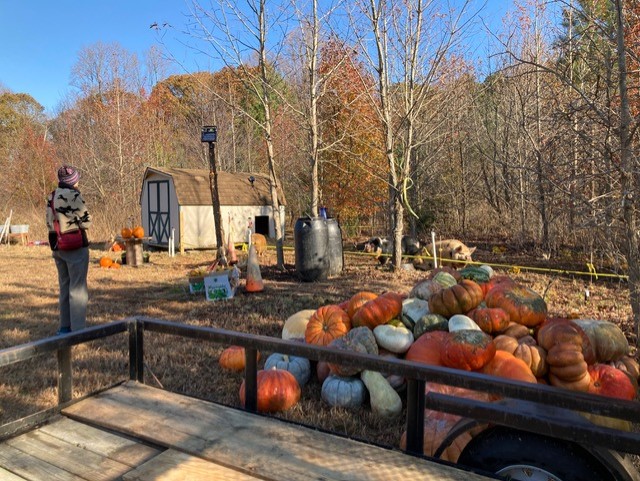
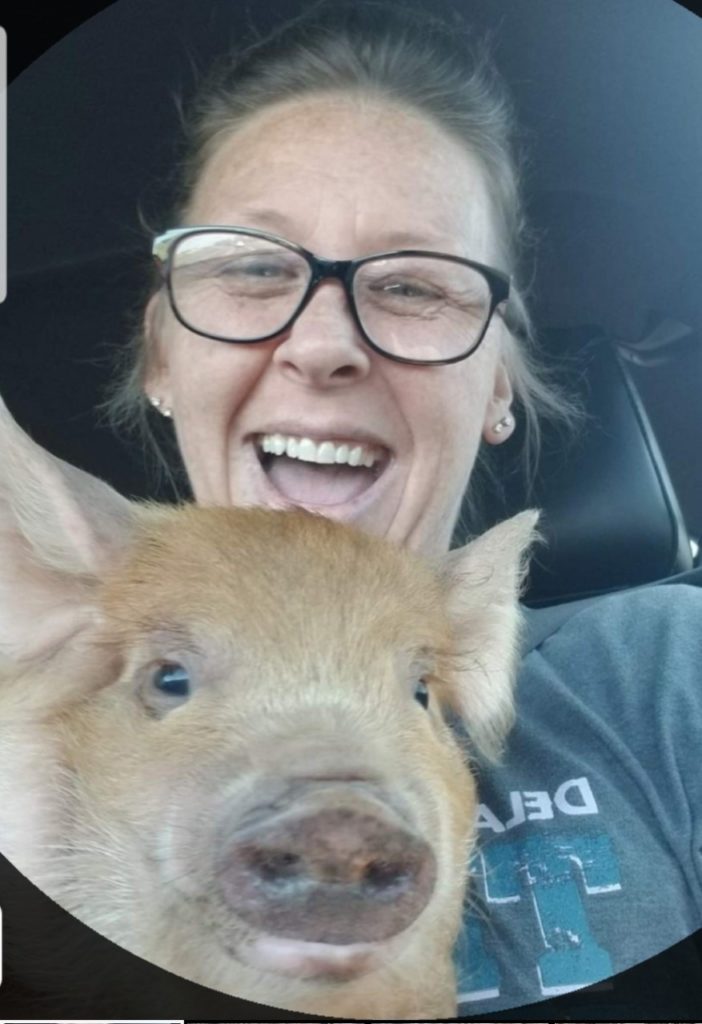
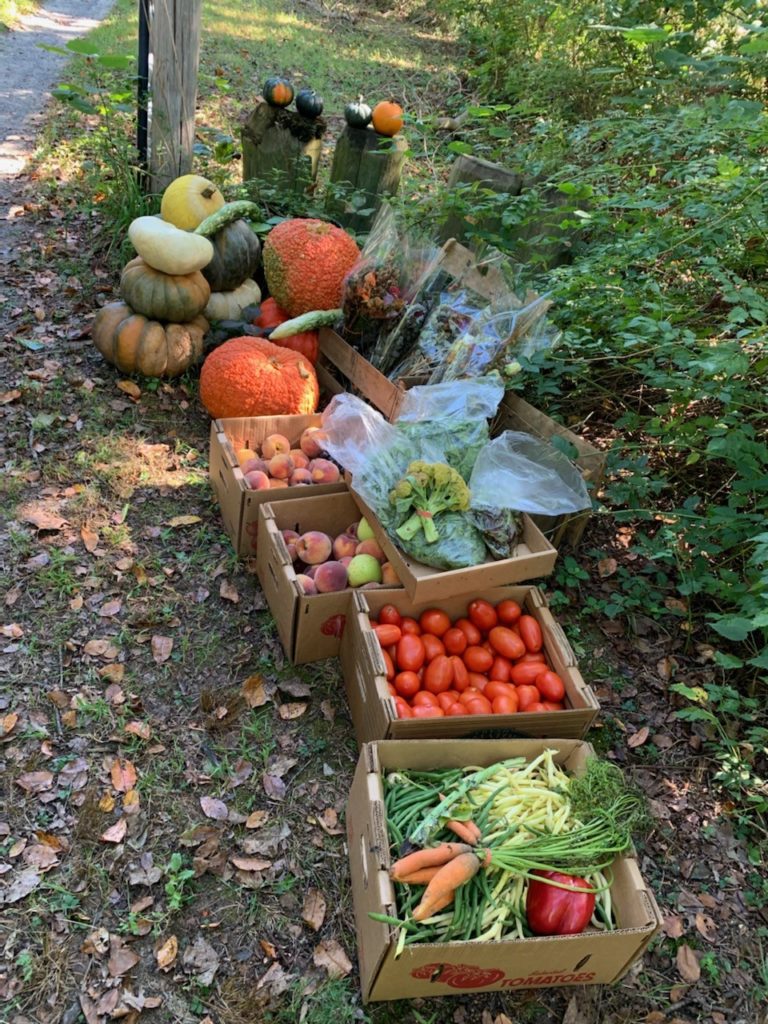

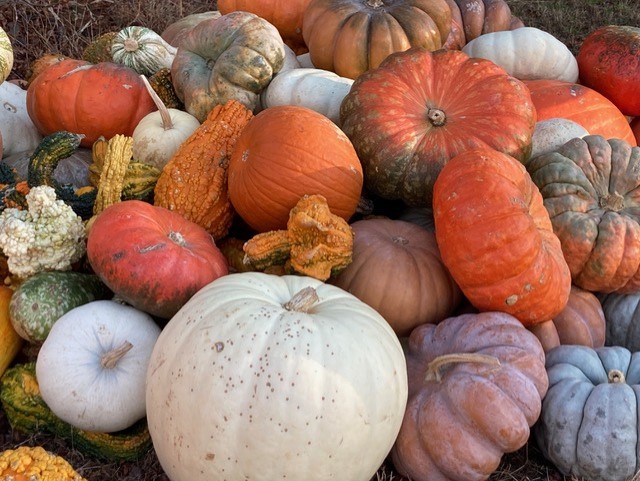

Salty Birds and Swine, Proprietors
The mission of Pumpkins for Pigs is “to reduce food waste in our communities by diverting viable foodstuffs including pumpkins to farms, animal sanctuaries, and rescues for feed or compost.” Pumpkins For Pigs began in Loudoun County, Virginia, and now operates 600 donation sites across 44 states and Canada.
There are several locations throughout Delaware. Agrestic Acres is in Ellendale, Cedar Creek Farms is just north of Slaughter Beach on the east side of Coastal Highway near Milford, and Wall 2 Wall Farms is close by in Lincoln, just south of Milford, Brode’s Spa Acres Hobby Farm and Gove’s in Harrington, Grateful Acres is in Middletown, Freedom Farm is in Georgetown, and Happy Trails Ranchita is in Felton. The Pumpkins for Pigs web site specifies what products each location will accept, and some will pick up for you.
Most locations accept some combination of pumpkins, gourds, accords, fruits, vegetables, hay, straw, and Christmas trees.
Pigs are vegetarians. Besides pumpkins, they love salads and scrambled eggs, she notes. But they will eat pretty much anything that is listed on the Delaware page on the Pumpkins for Pigs web site.
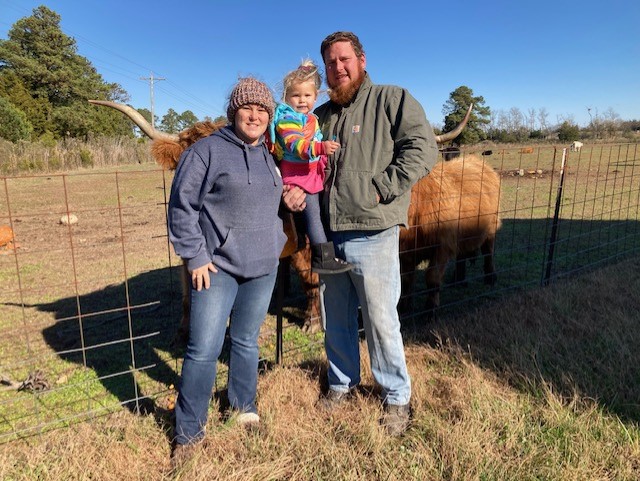
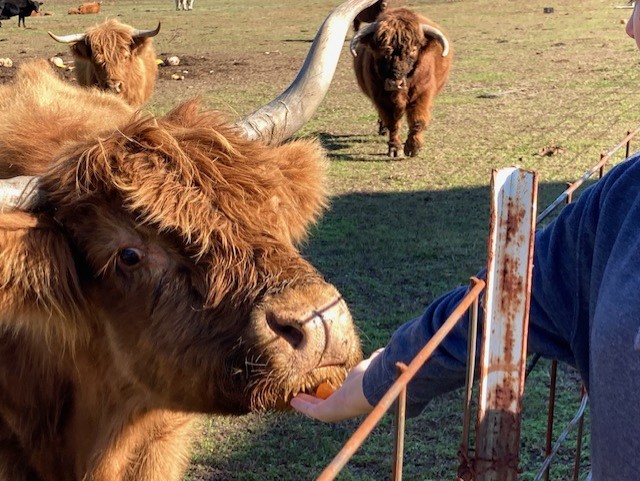
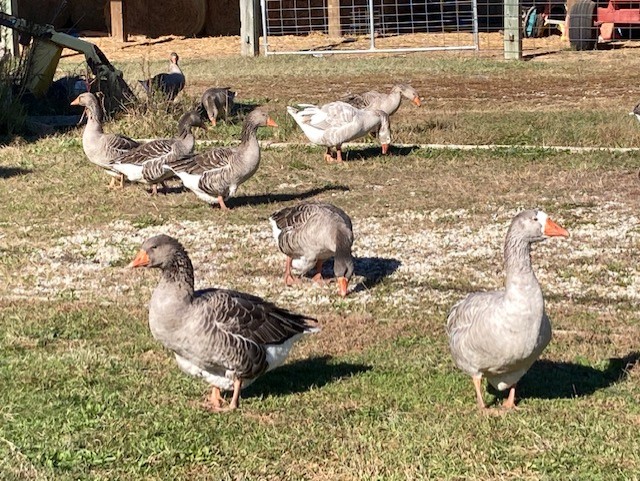
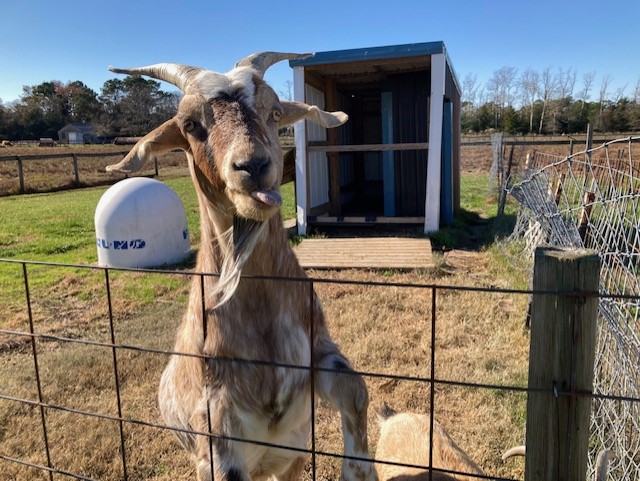
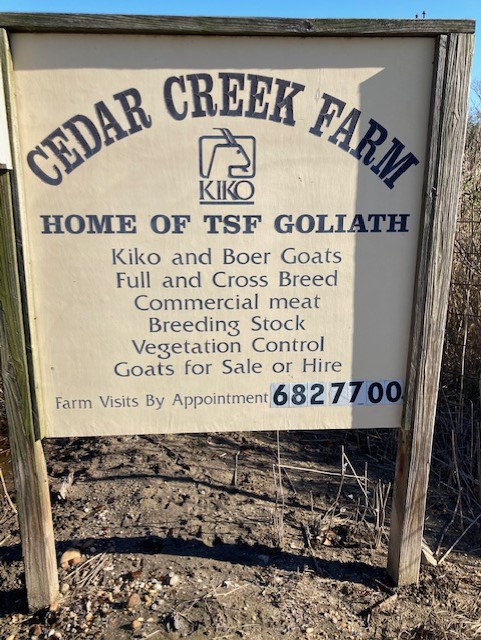
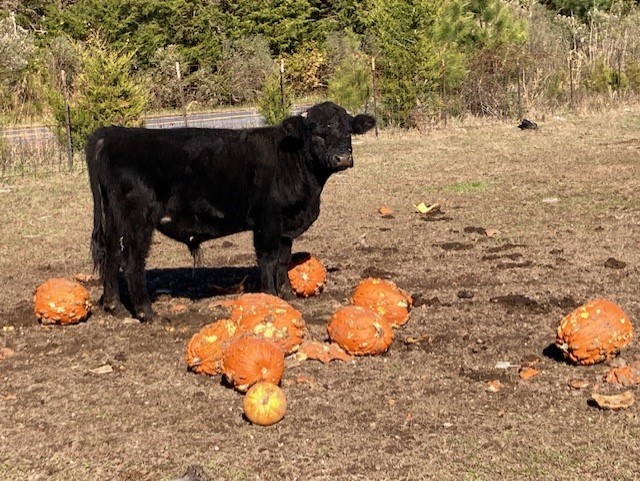
Kristen Williams and her husband Charles run Cedar Creek Farms. They typically only have pigs in the spring and summer because they raise them for commercial purposes. But their long-horned Scottish Highland cows, Bethany and Jack, love to eat pumpkins. So does their black cow LB (that stands for Little Beauty). Plus, the cows seem to love the cheese puffs that Kristen feeds to them from a plastic container. The farm is also home to goats and geese.
The Williams family has been involved with Pumpkins for Pigs for a couple of years but have run their farm for about five years. Kristen grew up in the area just north of Slaughter Beach. Her parents and grandparents live nearby.
If Cedar Creek seems a little off the beaten path, a visit there could also include a stop at the Prime Hook Wildlife Preserve, only a few minutes south and east of Coastal Highway. The farm itself encompasses Ft. Saulsbury that was active in both World Wars. It is known in Delaware as “the Forgotten Fort”.
The Pumpkins for Pigs web site recommends that donors contact their location of choice in advance and it is mandatory in many cases. Check each listing for drop off instructions. Monetary donations are also appreciated.
By Mary Jo Tarallo, Guest Journalist

Mary Jo Tarallo spent much of her career in public relations with various non-profits and spent 40 years involved with the ski industry as a journalist, public relations director for a national trade association and as executive director of the Learn to Ski and Snowboard initiative. Prior to her ski industry involvement she worked for the Maryland International Center in Baltimore and United Way of Central Maryland. She won a Gold Award for TV programming for a United Way simulcast that starred Oprah Winfrey. She has been cited for her work by numerous organizations. Mary Jo grew up in Baltimore, attended the University of Maryland and Towson University, lived in Washington, DC for 21 years and has been a full time resident of Rehoboth Beach and Milton since May 2019.